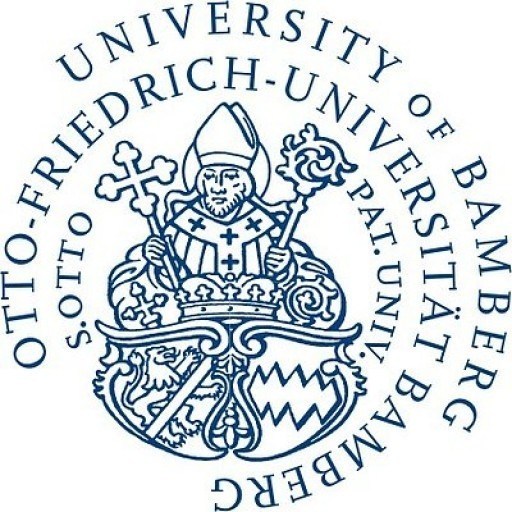Photos of university / #virginia.tech
The Bachelor of Arts in Social, Political, Ethical, and Cultural Thought at Virginia Tech offers students a comprehensive interdisciplinary education that explores the fundamental issues shaping human societies and cultures. This program is designed for students interested in engaging critically with complex social and ethical questions, analyzing political ideologies, and understanding diverse cultural perspectives. Through a diverse curriculum that integrates philosophy, political science, ethics, history, and cultural studies, students develop not only analytical and evaluative skills but also a deeper appreciation for the interconnectedness of global issues. The program emphasizes fostering critical thinking, ethical reasoning, and effective communication, preparing graduates for careers in public service, non-profit organizations, media, education, law, and further advanced studies. Students have the opportunity to explore topics such as social justice, human rights, political theory, moral philosophy, and cultural identity. The curriculum encourages active engagement through seminars, research projects, and experiential learning, often involving community interactions and real-world applications. Faculty members are experts in their fields, committed to mentorship and collaborative research, helping students to refine their ideas and develop a nuanced understanding of contemporary social challenges. The program also promotes an understanding of ethical frameworks and cultural contexts, equipping students to approach issues with sensitivity and informed perspectives. Graduates of this program leave with a strong foundation in critical inquiry and ethical analysis, capable of contributing thoughtfully to discussions on societal development, policy-making, and cultural understanding. Whether preparing for graduate studies or entering the workforce, students gain valuable skills vital for addressing the moral and political dilemmas of our time. With a flexible curriculum and supportive academic environment, the Social, Political, Ethical, and Cultural Thought program at Virginia Tech encourages intellectual growth, cultural awareness, and ethical responsibility, empowering students to become active, informed citizens dedicated to positive societal change.
The ASPECT doctoral program at Virginia Tech is for students who have previously earned an M.A. or equivalent (e.g. JD, MBA, MS) before pursuing doctoral study. Under the assumption that students accepted into the ASPECT program with a Masters degree or equivalent either from Virginia Tech or elsewhere have received credit for 30 credit hours, they then will undertake a minimum of 60 semester hours of further study, leading to the defense of a Ph.D. The Ph.D. curriculum concentrates on interdisciplinary methodological and theoretical issues. Therefore, ASPECT is where social, political, ethical, and cultural thought are put to work in understanding social and individual transformations in contemporary and historical contexts.
Course requirements for the Ph.D. can ordinarily be completed during two years of residency and entail successful completion of 42 credit hours, leading to the defense of a Ph.D. dissertation proposal and preliminary exams during the fourth semester. Thereafter, dissertation research will be undertaken under the supervision of a multidisciplinary advisory committee and remaining credits may be earned either by taking additional classroom courses or research and dissertation credits.
Students pursuing the ASPECT Ph.D. select a major and a minor concentration chosen from among four areas: 1) social thought, 2) political thought, 3) ethical thought, and 4) cultural thought. Additional ASPECT courses requirements offer education in interdisciplinary theory, methodology, and professional development.
The ASPECT curriculum consists of four kinds of classroom courses: 1) All candidates will take 12 credit hours of core ASPT courses (ASPT 6004, ASPT 6104, ASPT 6204, and ASPT 6904); 2) 21 credit hours selected from ASPECT cross listed departmental offerings (six of the latter are brand new courses expressly designed to support program goals), 3) six credit hours in social science or humanistic research methods; and, 4) three credit hours in pedagogical practices (GRAD 5114).
All students are required to identify a major and minor field (one each selected from the four concentration areas). The 21 credit hours mentioned in (2), are selected to fulfill the major and the minor areas of concentration, with 12 credit hours in the major and 9 credit hours in the minor area. No more than 9 credit hours can be taken in one department in fulfillment of the major area, no more than 6 from one department in the minor area.
- Transcripts. Include a scanned copy of your college transcripts with your online application, then arrange for an official copy to be sent to us after you receive an offer of admission.
- Letters of Recommendation. Check to see whether your department requires letters of recommendation from references. If so, you can include their email addresses in your online application, or have them send paper copies directly to your program’s department.
- Application Fees. Degree-seeking students must include a $75 fee with their application, though check to see if you qualify for a waiver or reduced fee.
- TOEFL Paper 550.0, Computer 213.0, iBT 80.0
- GRE
- Minimum GPA: 3.5
- Institution code: 5859
Scholarships
- University Scholarships
- Global Education
- Assistantships
The Social, Political, Ethical, and Cultural Thought program at Virginia Tech is an interdisciplinary academic offering that aims to develop students' understanding of the complex social, political, ethical, and cultural issues shaping contemporary society. The program is designed to provide students with a critical and analytical perspective on societal challenges, enabling them to critically evaluate various viewpoints and develop well-informed positions on pressing global and local problems. It emphasizes the importance of ethical reasoning, cultural awareness, and political literacy, preparing graduates for diverse careers in public service, non-profit organizations, law, policy analysis, education, and beyond.
Students in this program engage with a broad curriculum that includes courses in philosophy, political science, anthropology, history, and ethics, often integrating them through thematic modules that explore topics such as social justice, human rights, environmental ethics, multiculturalism, and political theory. The program encourages active participation in discussions, debates, and research projects, fostering skills in analytical thinking, ethical decision-making, and effective communication.
Virginia Tech's approach to Social, Political, Ethical, and Cultural Thought emphasizes inclusivity and diversity, ensuring that students consider multiple perspectives and the intersections of various social identities. The program also provides opportunities for experiential learning, such as community engagement, internships, and research collaborations with faculty members leading projects related to social justice and policy development. Graduates of this program are equipped to contribute meaningfully to societal dialogue and to act as informed, ethical leaders in their chosen fields.
Overall, the program seeks to cultivate socially responsible citizens who are capable of addressing complex problems with nuanced understanding, ethical clarity, and cultural sensitivity. By combining theoretical knowledge with practical skills, the curriculum prepares students not just for employment but also for active and conscientious participation in civic life and global issues.
(Note: This text is based on typical interdisciplinary programs related to social, political, ethical, and cultural thought at Virginia Tech and similar institutions, inferred from university patterns and related offerings.)









